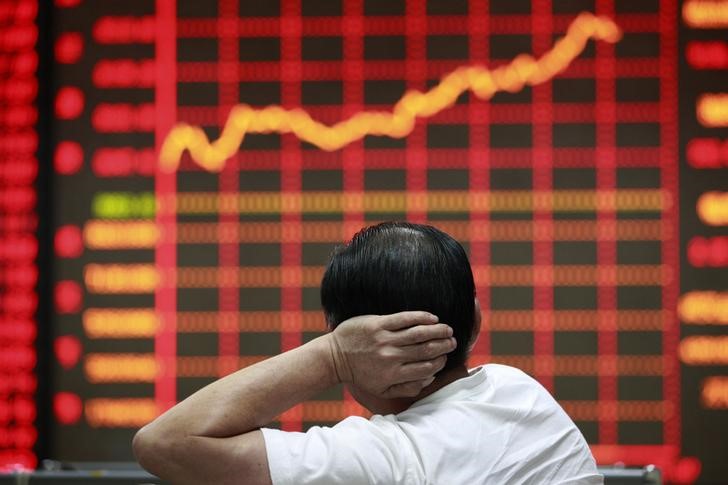This post was originally published on this site
https://i-invdn-com.investing.com/news/LYNXMPEABM09Q_M.jpg
Regional stocks shrugged off a strong lead-in from Wall Street, with tech stocks seeing extended selling as uncertainty over Alibaba Group Holding (HK:9988) (NYSE:BABA) and worsening U.S.-China relations continued to weigh on sentiment.
Alibaba sank 1.8% on Tuesday, extending losses after the head of its cloud unit unexpectedly quit this week. The stock was among the biggest weights on the Hang Seng, which fell 0.1%.
Losses in Alibaba also spilled over into its tech peers, with Tencent (HK:0700) and Baidu (NASDAQ:BIDU) Inc (HK:9888) down about 0.5% each.
China’s Shanghai Shenzhen CSI 300 and Shanghai Composite indexes traded flat after logging strong gains in the prior session, as data showed substantial improvement in Chinese new loan and social financing, amid continued monetary support from the government.
But sentiment towards China still remained on edge, given that other economic indicators for August still pointed to continued headwinds for Asia’s largest economy.
Focus this week is on key retail sales and industrial production data for August, due on Friday.
Broader Asian markets inched lower, with focus squarely on a U.S. consumer inflation reading due on Wednesday. Inflation is expected to have risen in August at a faster pace than July, giving the Federal Reserve more impetus to keep interest higher.
South Korea’s KOSPI fell 0.4%, while Australia’s ASX 200 was flat after data showed a continued downturn in consumer sentiment through early-September.
Japan’s Nikkei 225 rose 0.8% as it rebounded from a three-week losing spree. The Nikkei was battered by recent comments from Bank of Japan Governor Kazuo Ueda, who said that the bank’s 2% annual inflation target was in sight, which could then see the bank pivot away from nearly a decade of negative interest rates.
India’s Nifty 50 and BSE Sensex 30 were the key outliers among their Asian peers this week, hitting record highs on Monday as optimism over the country’s economic strength attracted a deluge of retail and foreign buying.
The Indian economy was one of the fastest-growing global economies in the April-June quarter, expanding 7.8%, and is expected to keep this momentum in the coming quarters.
Improving geopolitical rhetoric towards India also aided sentiment, after the country hosted its first ever Group of Twenty (G20) summit in September.
But focus is now on consumer price inflation data for August, due later in the day. Sticky inflation has remained a key pain point for the Indian economy in recent months, with the August reading expected to show continued resilience.

